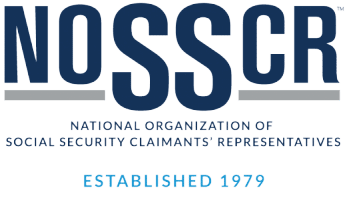Helping Injured Workers in San Jose Get the Compensation They Deserve
A workplace injury can leave you facing medical bills, lost wages, and uncertainty about your future. California law provides workers’ compensation benefits to help injured employees, but filing a claim and securing benefits is not always easy. Employers and insurance companies often deny or dispute claims, making it difficult for workers to get the support they need. The Law Offices of Norman J. Homen is committed to helping injured workers in San Jose navigate the claims process and fight for the benefits they are entitled to receive.
Workers’ Compensation Benefits in California
If you were injured on the job, you may qualify for benefits that include:
- Medical treatment – Covers doctor visits, hospital stays, surgeries, medications, and physical therapy.
- Temporary disability benefits – Provides wage replacement while you recover and are unable to work.
- Permanent disability benefits – Compensation for lasting impairments that impact your ability to work.
- Job displacement benefits – Assistance with retraining or acquiring new job skills if you cannot return to your previous position.
- Death benefits – Financial support for dependents of a worker who passed away due to a job-related injury or illness.
Common Workplace Injuries in San Jose
Work-related injuries can happen in any profession, from tech and office jobs to construction and healthcare. Some of the most common injuries that qualify for workers’ compensation include:
- Back and neck injuries – Often caused by lifting, falls, or repetitive motion.
- Repetitive stress injuries – Carpal tunnel syndrome, tendonitis, and other conditions from repeated movements.
- Slip and fall injuries – Sprains, fractures, and head trauma due to unsafe work environments.
- Work-related illnesses – Respiratory conditions, toxic exposure, and hearing damage from hazardous workplaces.
- Traumatic injuries – Broken bones, burns, amputations, or concussions resulting from workplace accidents.
Why Workers’ Compensation Claims Get Denied
Not all claims are approved, and many injured workers face challenges when seeking benefits. Common reasons for a denied claim include:
- The injury was not reported to the employer on time.
- The claim was not filed within the required legal deadline.
- The employer or insurance company disputes whether the injury is work-related.
- There is insufficient medical evidence to support the claim.
- The worker did not receive treatment from an approved medical provider.
If your claim has been denied, do not give up. A San Jose workers compensation lawyer can help you appeal the decision and build a strong case for the benefits you need.
How a Workers Compensation Lawyer Can Help
Navigating the workers’ compensation system can be complicated, especially when dealing with insurance companies that try to limit payouts. A lawyer can:
- Ensure all paperwork is properly completed and submitted on time.
- Collect medical records and other evidence to strengthen your claim.
- Negotiate with insurance companies to seek fair compensation.
- Represent you in hearings if your claim is denied or disputed.
Call Today for a Free Consultation
If you have suffered a workplace injury, you should not have to fight for your benefits alone. The Law Offices of Norman J. Homen is here to guide you through every step of the process and advocate for your rights. Contact us today for a free consultation.
Other Areas We Serve
Testimonials
![]()
Norman J. Homen and Moises Aguirre are very professional. They helped win my case. They communicated very well with me and were very helpful to me. I would recommend this team for your case.
—Joe Prada
![]()
We had a good experience with this office . They worked with us and kept us informed with what we needed to know and how process works . My husband had been trying to get approved since 2021 on our own but kept getting denied . Very thankful to this team he finally got awarded!
—Lupe
![]()
I am grateful for all of the great people at Law Offices of Norman J. Homen. They won my case and I definitely recommend them. I am Spanish speaking so with the help of Moises Aguirre, I was able to communicate clearly during the whole appeal process and answered any questions I had. Thank you!
—Graciela Villeda





